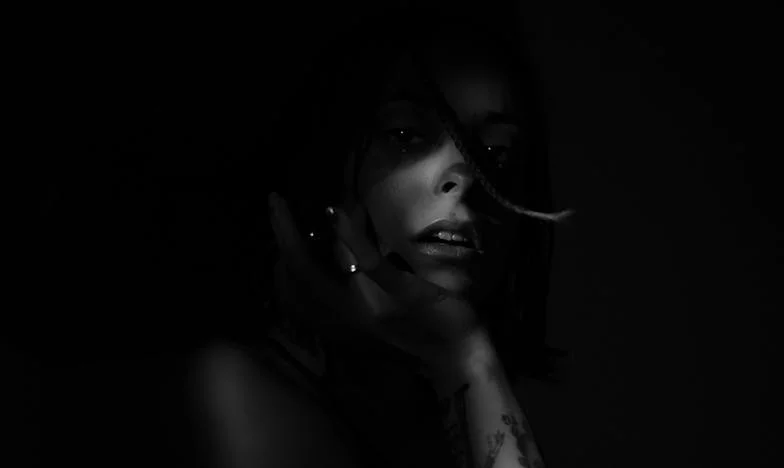When the Snow Fell: A Story of Loss, Family, and Forgiveness in Idaho
“No, please! Momma, wake up! MOMMA!”
The icy shriek of my own voice still echoes in my mind, even twenty years later. I was six. There was blood all over the floor, and my baby sister cried so hard her tiny fists shook. Mrs. Thompson from next door pressed me against her apron, but I wriggled away, wanting to crawl back to my mother’s side. Her eyes, once bright as Idaho summer skies, had faded into a distant gray. My daddy stood in the corner, hands shaking, face white as the blizzard howling outside.
I’ve asked myself a thousand times: why didn’t anyone call for help? Why didn’t Daddy try to drive her to the hospital in town, even if the roads were buried under six feet of snow? Why did the grown-ups just stand there, crying and praying, while Momma’s life slipped away?
After the funeral, our little house felt haunted. My three-year-old sister Sarah clung to me, sobbing for Momma. The baby, Emily, slept in her cradle, oblivious to the loss that would shape her life. Daddy, once so full of jokes and stories, turned into a ghost himself. He barely spoke, except to shout at us when we made noise or spilled our milk.
“Go to bed, now. No stories tonight,” he’d bark, slamming the door behind him. Sometimes I heard him crying in the kitchen, the sound muffled by his big hands. Other nights, he’d simply leave, boots crunching on the frozen ground as he trudged out to the barn to be alone.
I learned to care for Sarah and Emily. I brushed Sarah’s hair, changed Emily’s diapers, even learned to heat up formula on the stove. My hands always smelled of dish soap and sour milk. At school, I stared out the window, watching fat snowflakes drift down, wishing I could disappear with them. The other kids whispered, “That’s the girl whose mom died.” I hated being that girl.
One afternoon, after a rough day, I found Daddy in the barn, staring at the wall.
“Daddy, why didn’t we get a doctor for Momma?” I blurted out.
His shoulders stiffened. He turned, eyes red. “The snow was too deep. The phone lines were down. I did what I could, Maddie.”
“But—”
He slammed his fist onto the workbench, making me jump. “It’s not your fault. It’s not mine, either.”
But I could see he didn’t believe it. And neither did I.
The years crawled by. Daddy started drinking. Sarah grew quiet and angry, punching holes in her bedroom wall. Emily, who never knew Momma, became wild and stubborn, always running away into the woods after school. I became their mother and their warden, my own childhood dissolving into chores and worry. I was twelve when Mrs. Thompson finally pulled me aside.
“Honey, you’re a child, not a mother. Let yourself cry sometimes.”
But I was afraid to cry, because if I started I might never stop.
On my sixteenth birthday, Daddy didn’t come home. Sheriff Riley knocked at the door at midnight, hat in his hands.
“There’s been an accident, Maddie. Your daddy’s truck slid off the road near the old mill.”
I didn’t cry then, either. I just nodded, numb, and went to make bottles for Emily. The next day, the county sent a social worker. She tried to separate us, but I clung to my sisters, refusing to let go.
“We’re all we have,” I told her, voice shaking. “You can’t split us up.”
Somehow, she relented. I finished high school online, working nights at the diner. I learned to fill out WIC forms and food stamp applications, how to negotiate with landlords and school principals. At night, I still heard Momma’s screams and Sarah’s angry sobs, but I pressed on.
When Sarah was sixteen, she ran away to Boise. I found her at a friend’s house, mascara streaked down her face, cigarette in hand.
“You don’t get it, Maddie!” she yelled. “You’re not my mom! You never were!”
I slapped her, then immediately regretted it. We sat on the curb, both crying, until I finally whispered, “I don’t want to be the mom. I just don’t want to lose you, too.”
Sarah came home. We made a shaky peace. Emily, always the baby, grew into a fierce, funny teen who swore she’d leave Idaho the second she turned eighteen.
Sometimes, in the quiet of early morning, I still ask the universe: why did this happen to us? Why did Momma die on that snow-choked day, while the rest of us were left behind? Why did no one help?
But last Christmas, as we sat around a wobbly table—three sisters, laughing over burnt cookies—I felt something shift.
Sarah squeezed my hand. “We made it, Maddie. You kept us together.”
Emily grinned. “We’re tough. Momma would’ve been proud.”
For the first time, I let myself believe it. Even in the shadow of loss, we’d built something strong. Not perfect, not easy, but real.
Now, I work as a nurse at the small-town clinic. Every time a woman walks in heavy with child, I make sure she’s safe. I listen. I call for help if I need to.
Sometimes, I still wonder: If someone had just tried a little harder, would Momma have lived? How many families are torn apart by things no one talks about—distance, poverty, fear?
Do other people carry these questions in their hearts, too? Or am I the only one?
